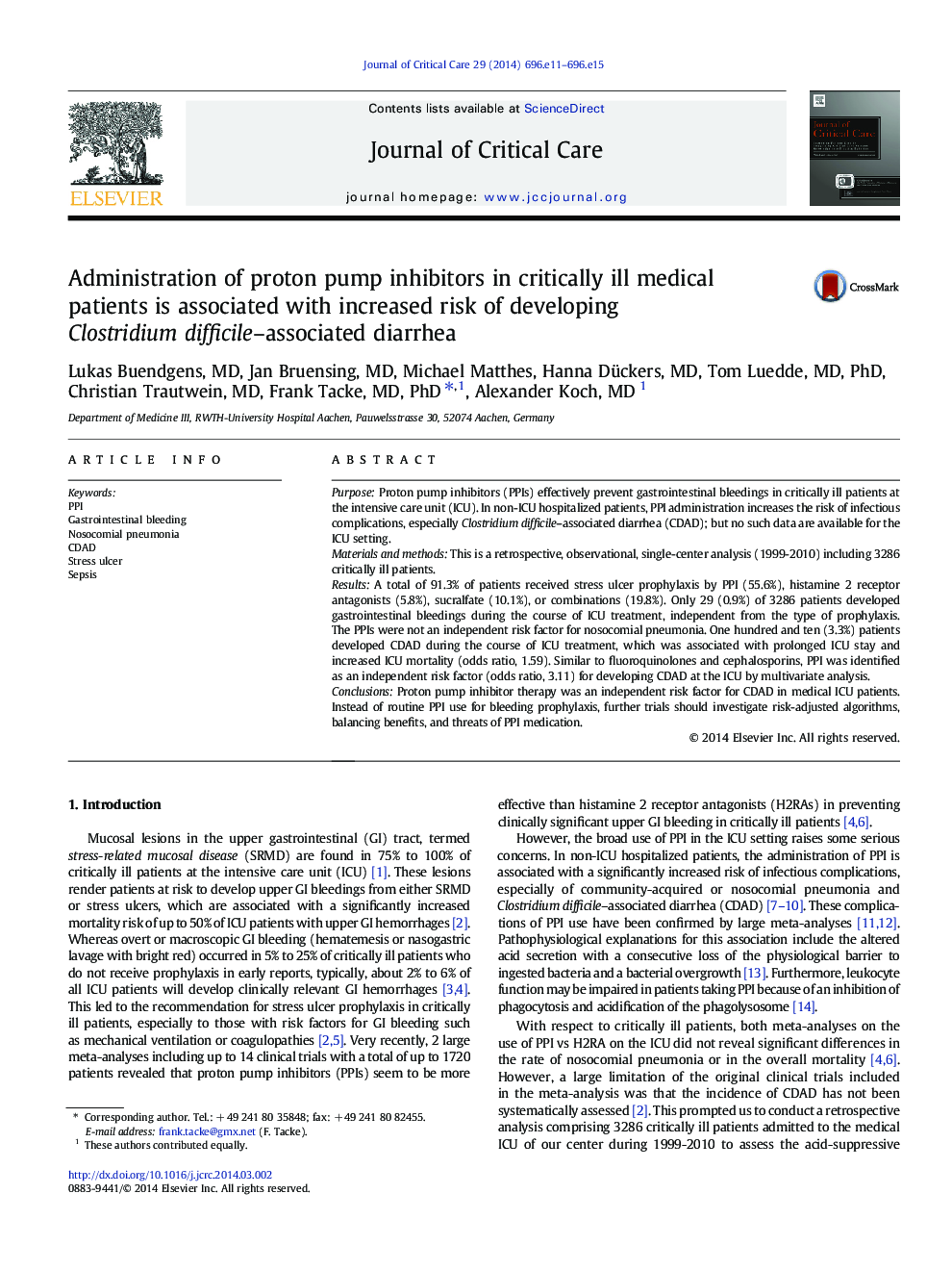| Article ID | Journal | Published Year | Pages | File Type |
|---|---|---|---|---|
| 5886583 | Journal of Critical Care | 2014 | 5 Pages |
PurposeProton pump inhibitors (PPIs) effectively prevent gastrointestinal bleedings in critically ill patients at the intensive care unit (ICU). In non-ICU hospitalized patients, PPI administration increases the risk of infectious complications, especially Clostridium difficile-associated diarrhea (CDAD); but no such data are available for the ICU setting.Materials and methodsThis is a retrospective, observational, single-center analysis (1999-2010) including 3286 critically ill patients.ResultsA total of 91.3% of patients received stress ulcer prophylaxis by PPI (55.6%), histamine 2 receptor antagonists (5.8%), sucralfate (10.1%), or combinations (19.8%). Only 29 (0.9%) of 3286 patients developed gastrointestinal bleedings during the course of ICU treatment, independent from the type of prophylaxis. The PPIs were not an independent risk factor for nosocomial pneumonia. One hundred and ten (3.3%) patients developed CDAD during the course of ICU treatment, which was associated with prolonged ICU stay and increased ICU mortality (odds ratio, 1.59). Similar to fluoroquinolones and cephalosporins, PPI was identified as an independent risk factor (odds ratio, 3.11) for developing CDAD at the ICU by multivariate analysis.ConclusionsProton pump inhibitor therapy was an independent risk factor for CDAD in medical ICU patients. Instead of routine PPI use for bleeding prophylaxis, further trials should investigate risk-adjusted algorithms, balancing benefits, and threats of PPI medication.
